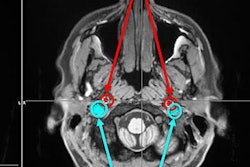Functional MRI (fMRI) studies with sample sizes of 30 or so subjects may not justify conclusions and are only modestly replicable, according to an analysis published online June 7 in Communications Biology.
Researchers reviewed the reproducibility of studies that had groups ranging from 16 to 121 subjects and spanned a multitude of task-based fMRI approaches. Task-based fMRI studies are designed to have participants perform cognitive tasks while undergoing MRI scans to monitor changes in blood oxygen levels. By doing so, investigators can see which brain regions become more active during those tasks.
"We found that reproducibility is modest in studies involving the standard number of 30 participants, and that much larger sample sizes may be needed to improve replicability," said study co-author Aron Barbey, PhD, a professor of psychology at the University of Illinois at Urbana-Champaign, in a statement.
Barbey and colleagues suggested that researchers pool their resources to conduct fMRI studies across numerous sites to add more participants and cover costs. This approach would also likely add more diversity to the groups of participants, they noted.



















